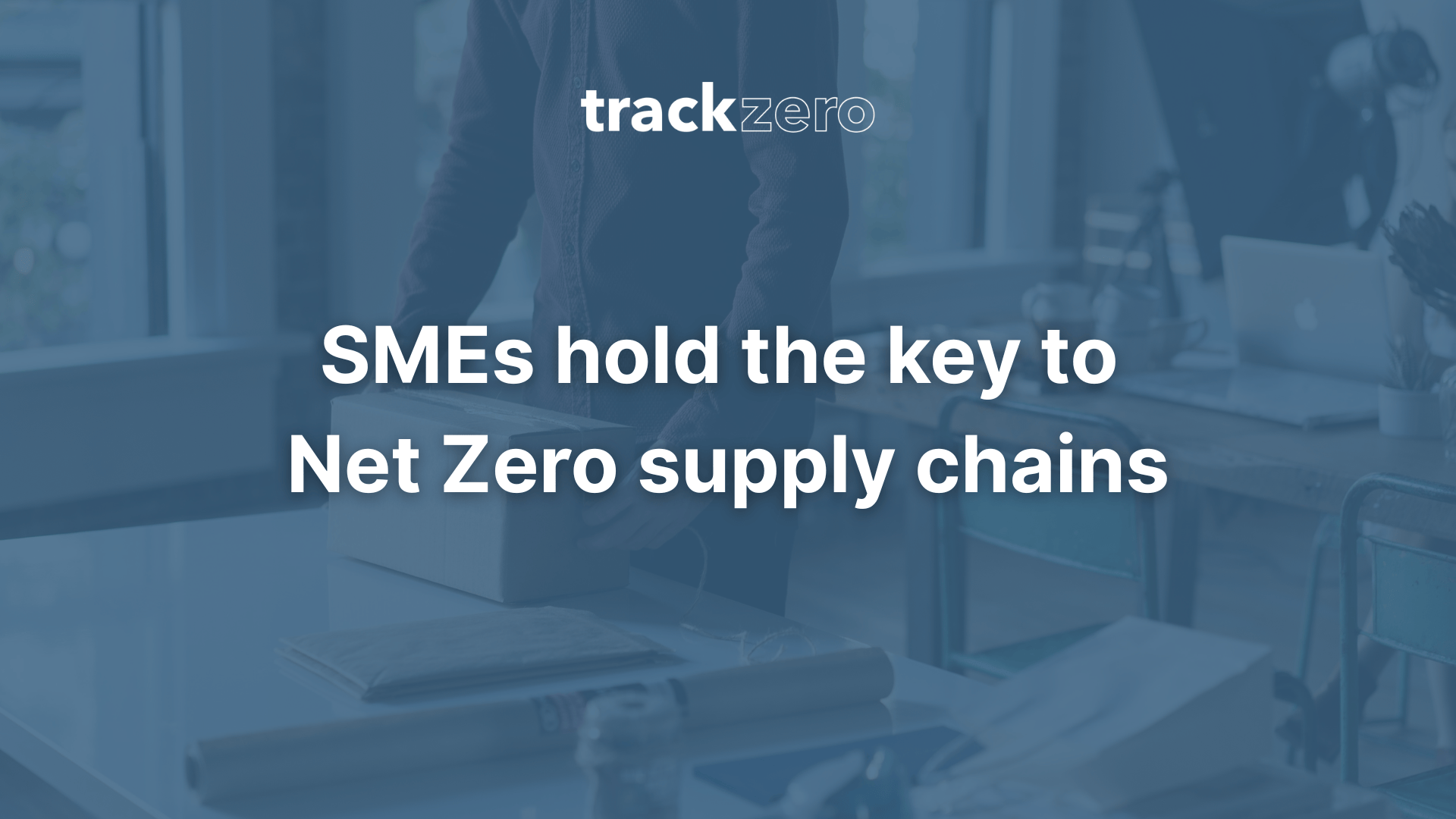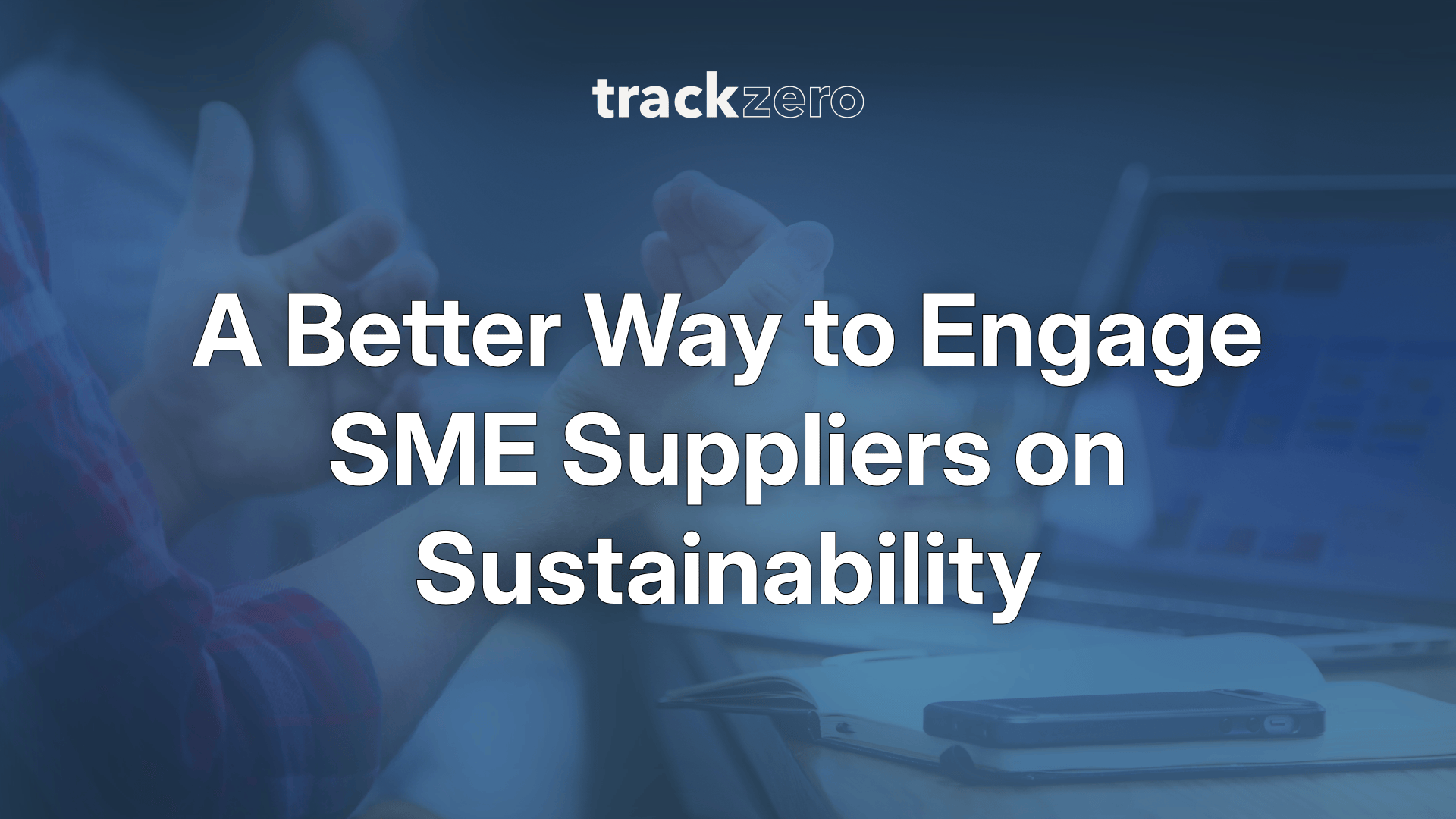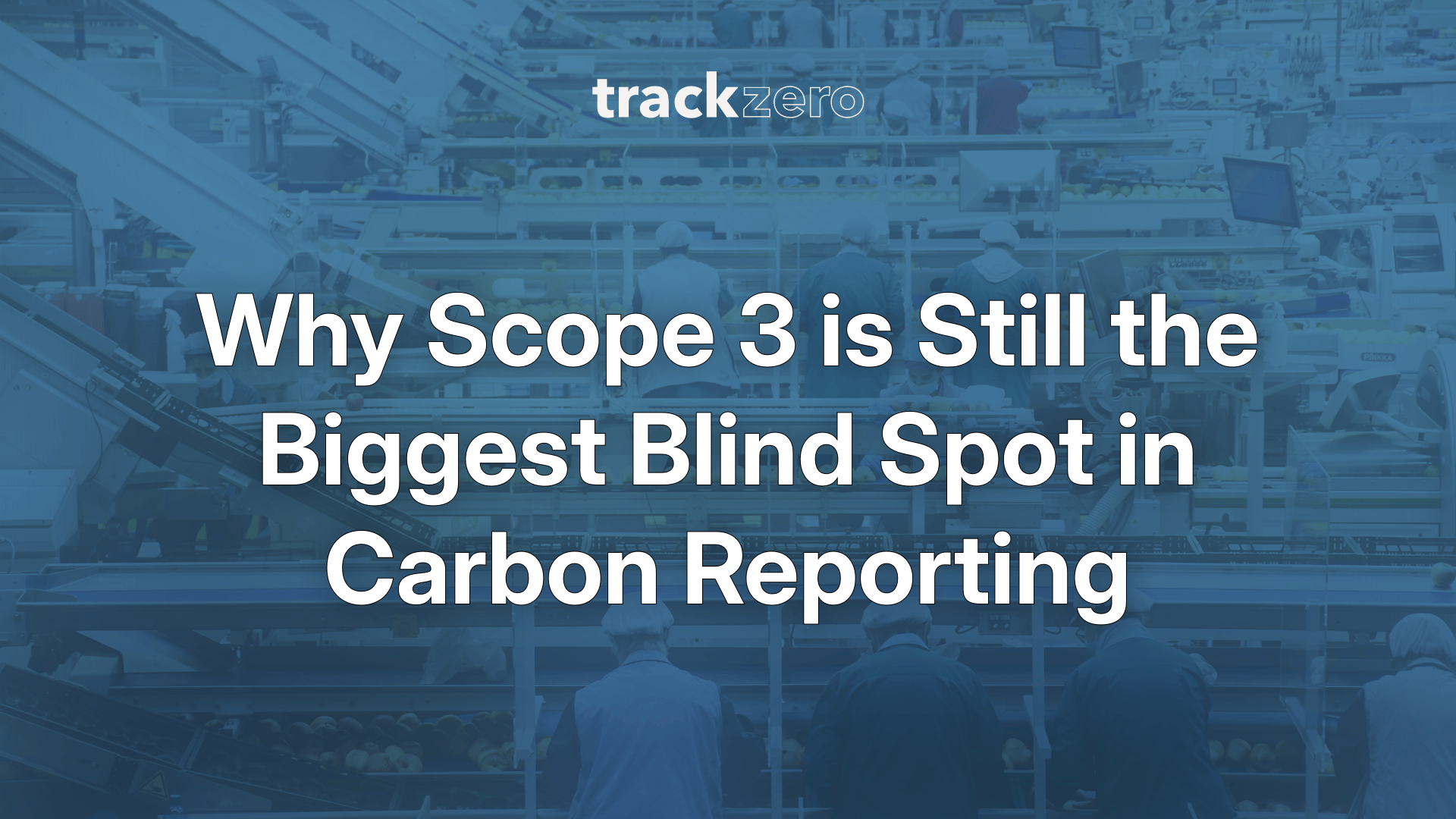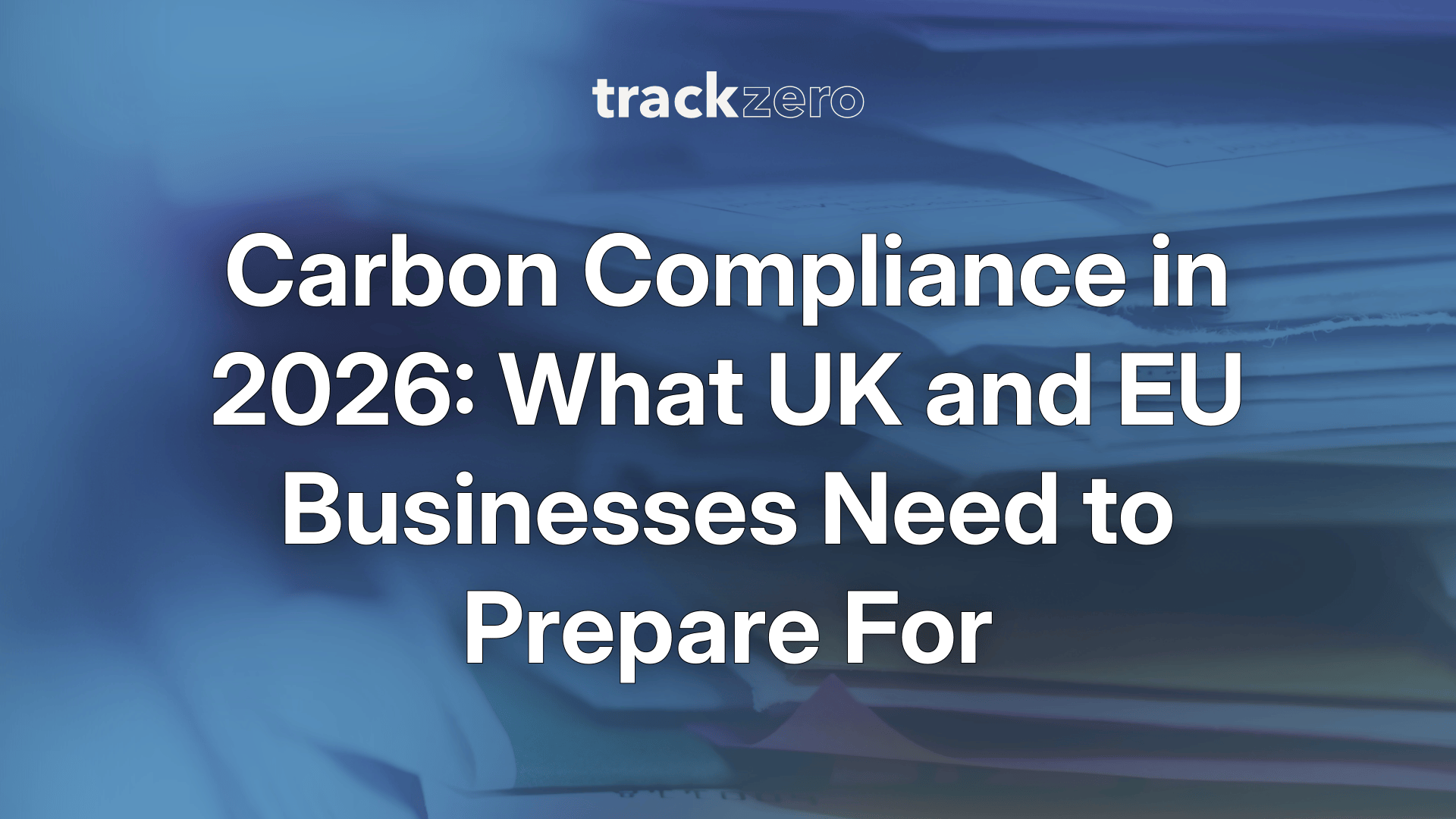When large organisations map their carbon footprints, the biggest surprise often isn't how much they emit. It is where those emissions come from.
In most industries, more than 90% of total emissions sit within the supply chain. These emissions come from the materials sourced, the logistics networks relied on, and the small businesses that make up the majority of suppliers. These small and medium-sized enterprises (SMEs) are often where the biggest opportunities for carbon reduction lie, but also where the biggest data gaps exist.
The growing pressure on large organisations
From the Corporate Sustainability Reporting Directive (CSRD) and Science-Based Targets to investor expectations, large organisations are facing increasing pressure to disclose credible, auditable data across their value chains.
When large organisations map their carbon footprints, the biggest surprise often isn't how much they emit. It is where those emissions come from. In most industries, more than 90% of total emissions sit within the supply chain. These emissions come from the materials sourced, the logistics networks relied on, and the small businesses that make up the majority of suppliers. These small and medium-sized enterprises (SMEs) are often where the biggest opportunities for carbon reduction lie, but also where the biggest data gaps exist. It is the source of many problems, spreadsheets are slow and often surveys are left incomplete.
The SME perspective: willing but under-equipped
The recent 2025 UK Net Zero Business Census showed that:
- 39% of SMEs report not knowing where to start as a barrier to net zero
- 66% of SMEs note costs as a barrier to net zero
- 52% and 47% report lack of time and expertise, respectively as barriers, too.
These figures reveal a clear pattern. While SMEs want to contribute to a low-carbon future, they are struggling to navigate the growing complexity of sustainability requirements. The result is delayed progress, poor visibility, and missed opportunities for real impact across entire supply chains.
Most SMEs want to act. They recognise that sustainability is increasingly linked to competitiveness because access to finance, tenders, and partnerships often depends on it. But they face real barriers. The solution is not to demand data from suppliers, but to equip them with tools that make sustainability simpler, more transparent, and more rewarding.
The enterprise challenge: collecting consistent, credible data
On the other side of the equation, sustainability and procurement teams within large organisations face their own frustrations. They know supplier data is critical to understanding and reducing scope 3 emissions, but collecting it is often messy and inconsistent.
A typical sustainability team might be managing hundreds or even thousands of suppliers, each at a different stage of their journey. Responses come in multiple formats, data quality varies, and follow-ups take months. This fragmented approach not only slows progress but also limits the value of the data collected. Without consistent, comparable insights, it becomes difficult to set meaningful targets, track improvements, or identify hotspots for reduction.
Collaboration is the missing piece
What is missing is not ambition, but a shared system that brings structure and simplicity to supplier engagement.
Supply chain decarbonisation cannot be achieved through a top-down approach. The most effective organisations treat it as a shared journey rather than an obligation. The global transition to net zero will not be delivered by a handful of large organisations acting alone. It will depend on thousands of smaller businesses being brought along with clarity and support.
In practice, this can look like:
- Hosting supplier workshops or webinars on how to measure emissions.
- Providing access to shared reporting tools, such as TrackZero
- Recognising and celebrating progress, not just requesting numbers.
- Building long-term relationships that reward improvement over perfection.
When enterprises invest in supplier enablement, they don't just improve compliance. They drive efficiency, innovation, and mutual accountability across the value chain. Data becomes cleaner. Reporting becomes easier. Emissions reduction becomes achievable.
Empowered suppliers, credible data, real progress.
At TrackZero, we help large organisations engage their suppliers through intuitive, guided assessments that turn complex reporting into simple, collaborative progress. SMEs gain the tools and confidence to measure their emissions for the first time, while enterprises benefit from accurate, comparable scope 3 data they can trust. This collaborative approach does more than improve data quality. It builds relationships, strengthens resilience, and accelerates collective impact.




